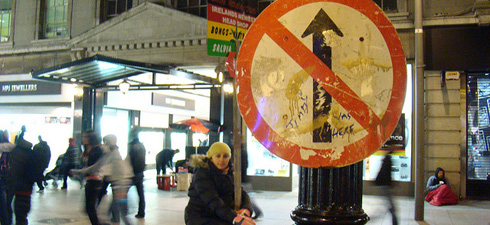 This morning, for the first time in years, the people of this country can climb out of bed in a frame of mind that may be clouded by many doubts and anxieties but is lightened by the knowledge that, at last, somebody is in charge.
This morning, for the first time in years, the people of this country can climb out of bed in a frame of mind that may be clouded by many doubts and anxieties but is lightened by the knowledge that, at last, somebody is in charge.
Unfortunately, "somebody" consists of teams from the European Commission, the European Central Bank and the International Monetary Fund, here to negotiate the terms of a bailout on a truly staggering scale for Ireland's rocky banks.
Their presence denotes a failure in our management of our own affairs. It is therefore to some extent a failure for all of us. It is a failure for the banks, which behaved recklessly, misled the Government and raided our pockets. It is most of all a humiliating failure for a Government which did not show the most rudimentary form of leadership until forced to do so by outside powers. Even worse, its acknowledgment of its deficiencies is at best partial. Yesterday Finance Minister Brian Lenihan reluctantly admitted that his policy had failed. Taoiseach Brian Cowen clearly has not brought himself to believe the reality.
Price must be paid, and the reward can be high
There is now a real danger that the Government will try to convince the people that the terms and conditions laid down by the IMF in particular are only options and that we are negotiating as equals. Ministers may convince themselves, if nobody else, of this absurdity.
In truth, we are bankrupt and dependent on others for mere survival. To bail out the banks will cost "tens of billions": less than €70bn according to the Finance Minister, €100bn according to speculation; in any case, far beyond our capacity to pay.
Ministers, and especially the Taoiseach, like to talk about their ability to make tough decisions. Their actions in the last two years have not been tough enough -- and most of them have been misguided. Now real, practical, radical and successful decisions must be made. The banks must be restructured, not cossetted. There may have to be mergers, sales to foreign giants. There can be no more flinching from responsibility.
But the price must be paid, and the reward can be high. By working our way through the dreadful difficulties that face us, we can in time prosper again, regain our economic sovereignty -- and recover our national pride and confidence. When we have struggled through and emerged on the other side, we will have earned all that.
Irish crisis
The end of independence
On Easter Monday, 1916, Irish revolutionary Patrick Pearse read out the Proclamation of Independence from the steps of the General Post Office (G.P.O.) on Dublin's O'Connell Street. Although his rebellion would fail, and its leaders executed, the text is considered a cornerstone of Irish national identity, with the first lines stating “Irishmen and Irishwomen: In the name of God and of the dead generations from which she receives her old tradition of nationhood, Ireland, through us, summons her children to her flag and strikes for her freedom.”
Nearly a century later, as the economically stricken nation readied itself for an EU/IMF bailout, as well as the loss of its economic sovereignity, the Irish Examiner led on 19 November with “Proclamation of Dependence”, with the lines of Pearse’s speech modified to reflect the new reality. “Irishmen and Irishwomen: In the name of God how have we come to this? And in the name of the dead generations from which she received her old tradition of nationhood, Ireland, through our new masters at the European Central Bank summons her children to her financial sovereign funeral.”
Was this article useful? If so we are delighted!
It is freely available because we believe that the right to free and independent information is essential for democracy. But this right is not guaranteed forever, and independence comes at a cost. We need your support in order to continue publishing independent, multilingual news for all Europeans.
Discover our subscription offers and their exclusive benefits and become a member of our community now!












